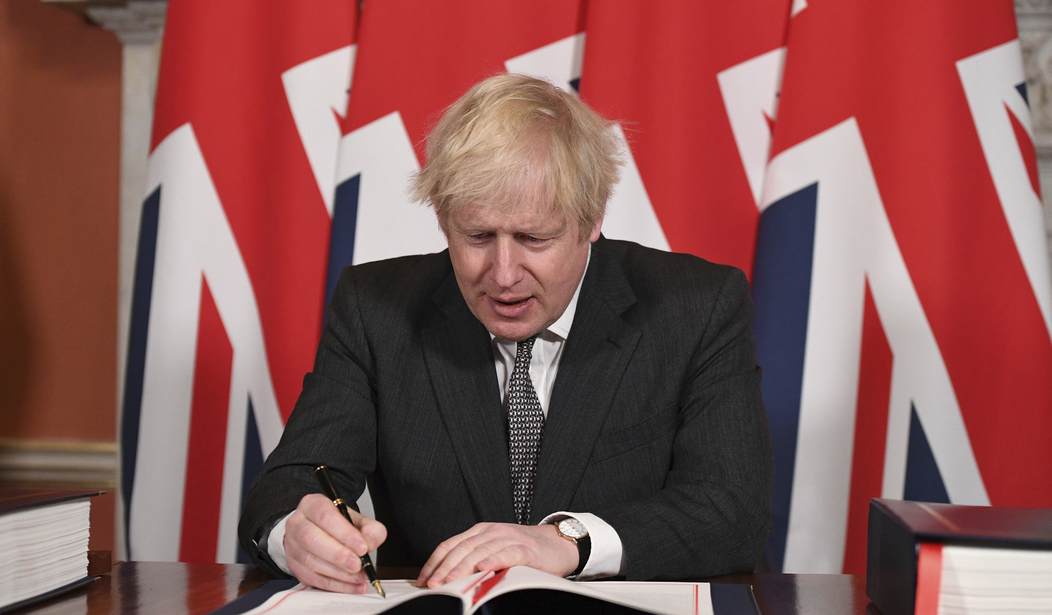There had been consistent rumors circulating across the pond that if the United Kingdom couldn’t get their surge in COVID cases under control, extended or additional lockdowns might be coming over the winter. Also, there were plans being drawn up to require a vaccine passport system for people wishing to go out to bars, restaurants, or nightclubs. Much as in the United States, these suggestions were the subjects of hot debate. As of this weekend, the UK has achieved some progress in bringing its numbers down, with a seven-day average of 26,400 new cases per day. That’s considerably lower than the 43,000 average they saw on July 1st, but still far above the rate measured at the beginning of June when they were averaging barely 2,600 new cases per day. Without a firm benchmark to fall back on in terms of government policy, a decision had to be made and it appears that Boris Johnson has made the call. There will be no vaccine passport requirement over the winter and the government does not “anticipate” any new lockdown measures. (Reuters)
British Prime Minister Boris Johnson will this week set out his plans to manage the COVID-19 pandemic in the winter months, announcing a decision to scrap the introduction of vaccine passports and steps to end some emergency powers.
Johnson, under fire from some in his governing Conservative Party for raising taxes to fix a health and social care crisis, looks set to try to soothe those critics by ditching plans to introduce passports despite an increasing number of coronavirus cases.
Speaking to broadcasters, Health Minister Sajid Javid said he did not anticipate more lockdowns and that the vaccine passports would not be introduced in England, as the government depends instead on vaccines and testing to defend the public.
We’re seeing a particularly stark contrast in style between the leaders of the two nations in the “special relationship.” In the United States, President Joe Biden is hurriedly churning out new mandates to force everyone to be vaccinated and show proof of their status if they even want to go to work, to say nothing of going out to socialize. Meanwhile, in the United Kingdom, restrictions are being rejected, with the government instead choosing to rely on voluntary participation in the vaccination rollout and broad availability of testing. Now let’s take a look at the comparison between the two countries in terms of the daily average of new cases over the course of the year.

No, it’s not an exact match, but it tracks pretty closely. Both had it rough last winter, then seeing a lot of progress over the spring and summer before backsliding as fall approaches. And both are currently seeing minor decreases over the past week. (We’re looking at this on a per capita basis, obviously, since the UK’s total population is so much lower.) Do those rising and falling patterns look familiar to anyone? They sure look a lot like the number of cases of the seasonal flu we were seeing almost every year up until 2020. Take that as you will.
So did politics play a role in BoJo’s decision? That can’t be ruled out entirely because the Tories have been a bit put off by Johnson’s decision to raise taxes to pay for the pandemic response and many have chafed at some of the social restrictions as well. That’s left BoJo walking a tightrope between Labour, his own Conservative Party, and the virus itself.
In terms of authoritarian mandates, there may be some other changes on the horizon also. At the start of the pandemic, Parliament passed the Coronavirus Act. That law gave the government far more restrictive powers than anything seen in the United States, including the ability to ban protests, shut down businesses and restrict travel. Those powers have been used, including instances of protesters against government mandates being arrested and jailed. But Johnson has had to walk a careful line, being aware that there’s only so much the people will be willing to put up with. (A lesson they may have learned from us roughly 250 years ago.) Now he’s proposing to roll back some of those emergency powers.
It sounds as if BoJo believes that his country can tough out this round of new cases without seeing a total collapse of support in his own party. We should know in a few months if it was the correct gamble. If this disease follows the same patterns we’ve seen previously, we could have a rough couple of months ahead of us.








Join the conversation as a VIP Member